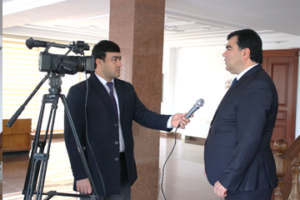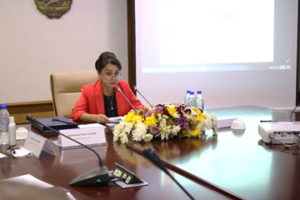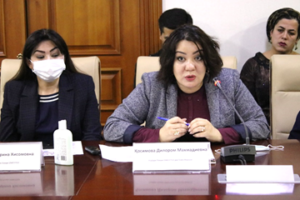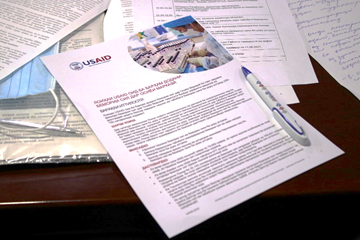Coordination meeting on tuberculosis in Khatlon region
USAID is supporting the government of the Khatlon Region in bringing together stakeholders to address issues related to tuberculosis.
On November 23rd, 2021, the United States Agency for International Development (USAID) Tuberculosis Eradication Project in Central Asia collaborated with the Government of the Khatlon Region to organize a coordination meeting with representatives from cities and districts in the region. The goal of the meeting was to discuss current issues related to tuberculosis. The meeting was attended by leaders from the National Program for Tuberculosis Prevention, heads of local health care centers, tuberculosis specialists from 26 different regions, and representatives from other relevant organizations. Participants discussed the National Tuberculosis Strategy for 2021-2025, which includes the implementation of new treatment protocols for multidrug-resistant TB (MDR-TB). They also discussed challenges faced by the Khatlon region, such as difficulties in diagnosing and treating MDR-TB.

In addition, the meeting participants discussed several important topics, including the impact of COVID-19 on tuberculosis detection, ways to improve public access to tuberculosis services, and methods to increase health financing. Based on the recommendations of the meeting’s chair, the government of the Khatlon region plans to publish an official government protocol. This document will detail the issues discussed at the meeting and propose solutions.

This was the first meeting, bringing together more than 90 representatives from various organizations, including centers for combating violence, primary health care systems, the Committee on Women and Family Affairs, the Committee on Youth Affairs, migrant services, and district law enforcement agencies in the Khatlon region. The meeting’s chairman expressed concern about further integration and coordination among all organizations involved in treating, preventing, and caring for tuberculosis patients. He proposed organizing additional meetings to plan the implementation of recommendations and address issues outlined in the protocol.
The meeting was presented as a model and will continue in other regions under republican jurisdiction and the Sughd region.









